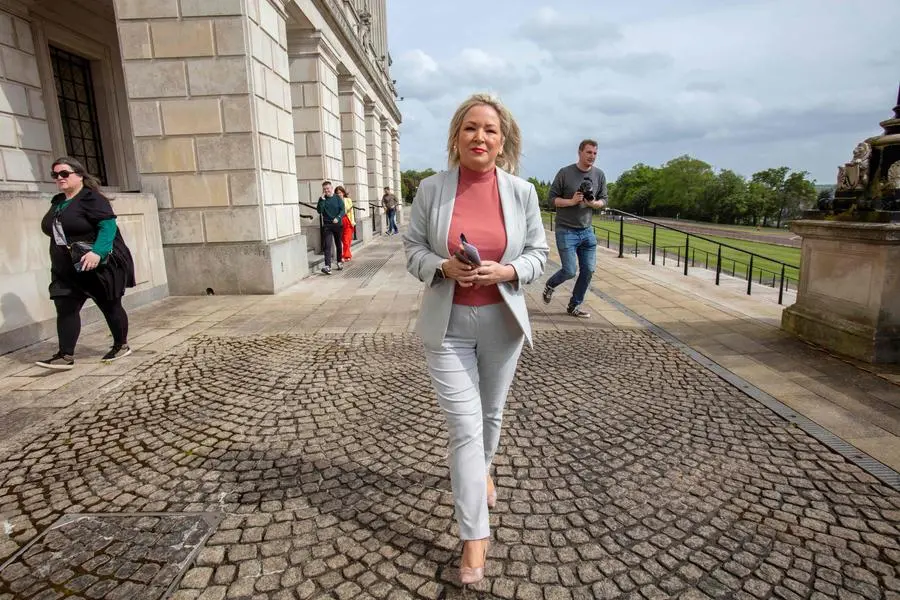PHOTO
The prime ministers of the UK and Ireland will meet Northern Ireland's political leaders in Belfast on Monday to mark the return of power-sharing in the devolved province after a two-year impasse.
UK Prime Minister Rishi Sunak arrived in the Northern Ireland capital on Sunday, a day after Sinn Fein's Michelle O'Neill made history by becoming the province's first Irish nationalist leader.
Sunak and his Ireland counterpart Leo Varadkar, who arrived in Belfast on Monday morning, are due to meet O'Neill and the pro-UK Democratic Unionist Party's (DUP) Emma Little-Pengelly, who holds the Deputy First Minister post.
The return of devolved governance comes after the DUP, Northern Ireland's biggest pro-UK party, ended a two-year boycott of Northern Ireland's parliament, Stormont.
The stalemate, which collapsed the devolved government in 2022, was broken after a deal was struck with Sunak's government in London over post-Brexit trade rules in Northern Ireland.
Sunak will meet both leaders to "discuss their immediate plans for delivery", his Downing Street office said.
The UK government has offered a £3.3 billion ($4.15 billion) package to stabilise the region's finances and settle public sector pay claims.
Sunak said the offer represented "a generous and fair settlement", but policy-making ministers in the Northern Ireland Executive are expected to press for more.
"It is about ensuring public finances in Northern Ireland are sustainable for the long term," added Sunak.
- Unification vote call -
O'Neill, who predicted on Saturday that the UK territory will hold a vote on unification with Ireland within the next decade, said on Saturday that Northern Ireland's funding model was the executive's number one priority.
Northern Ireland was carved from Ireland in 1921 with an in-built Protestant majority, after pro-UK unionists had threatened civil war when the island sought self-rule from Britain.
Instead, three decades of sectarian conflict erupted within the UK territory in the late 1960s.
A 1998 peace deal largely ended the violence and provides for the possibility of an all-Ireland vote on unification, often referred to as a border poll.
Under the terms of the accord, the British and Irish governments should organise a vote if it becomes apparent that "a majority of those voting would express a wish" for Northern Ireland to split from the UK.
The mechanism for initiating such a referendum was never spelt out, but the trigger is seen as consistent reliable polling on the issue.
O'Neill had been first minister-designate since May 2022, when Sinn Fein became the largest party in elections for the 90-seat assembly amid shifting demographics towards the old Catholic minority.
But until this week, the DUP boycott had led to stalemate.
As part of its agreement with the DUP to restart power-sharing, Sunak's government released a paper stating it "sees no realistic prospect of a border poll leading to a united Ireland", citing recent polling.
O'Neill said she disagrees with the assessment.





















